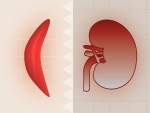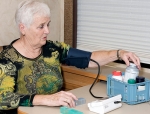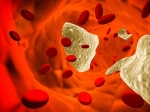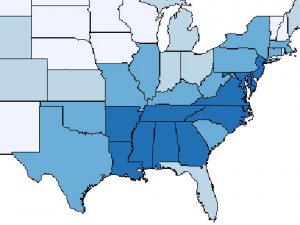Displaying items by tag: regards
New data from the REGARDS study show that blacks with the sickle cell trait are more likely to develop kidney failure requiring dialysis.
Tagged under
Those living in more advantaged neighborhoods are less likely to have a stroke than are their counterparts who live in less advantaged neighborhoods, according to a UAB study.
Tagged under
Tagged under
Tagged under
UAB’s Virginia Howard has been honored for her work to find novel and powerful approaches to reduce the burden of stroke and heart disease.
Tagged under
While it is well-known that nonsmokers can get cancer from inhaling smoke, the amount of risk associated with secondhand smoke and stroke has remained unclear until now.
Tagged under
Virginia Wadley, Ph.D., says until this new JAMA study, whether or not stroke survivors are at-risk over the long term was an unknown.
Tagged under
The importance of preventing hypertension is reinforced by a study showing anti-hypertension medicines can increase stroke risk by 248 percent, according to new UAB School of Public Health research published in the journal Stroke.
REGARDS investigators have responded with a letter published in the AHA journal Circulation, saying it is premature to draw firm conclusions about potential overestimation of risk using the new risk formula.
Tagged under
A new study from UAB researchers is one of the first to study the relationship between exercise and stroke in a large biracial cohort of men and women in the U.S.
Tagged under
Research from the UAB School of Public Health shows that patients with chronic kidney disease may improve their health by making lifestyle behavior changes.
Children and teens living in the Stroke Belt states are at about twice as much risk of stroke later on in life according to new findings from the REGARDS study.
Diet is one of many potential factors proposed to explain racial and regional differences in stroke.
Tagged under
UAB has been award a $28-million grant renewal for REGARDS, the nation’s largest study aimed at exploring racial and geographic differences in stroke illness and death.
Tagged under
The ongoing REGARDS study finds that a 10-millimeter difference in blood pressure can make blacks three times more likely than whites to have a stroke.
Tagged under
UAB researchers say there is a Sepsis Belt that aligns with the well-known Stroke Belt. A new grant will help them ferret out its mysteries.
Tagged under
















